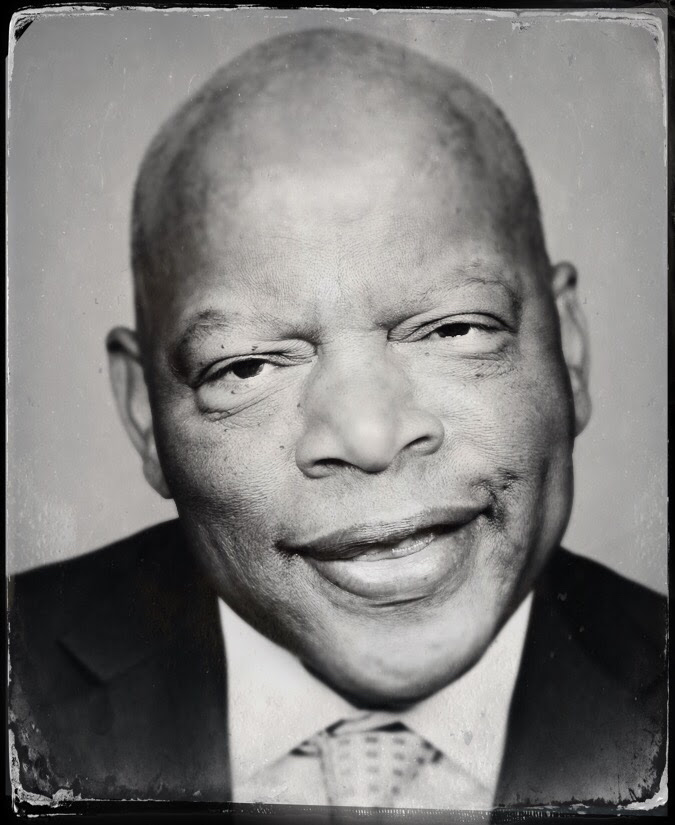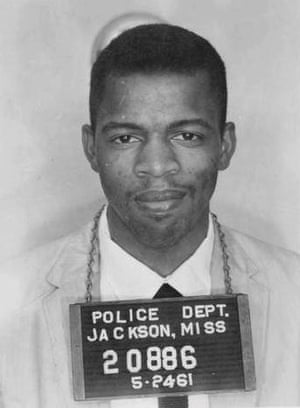
John Lewis On Love, Forgiveness, And The Seedbed Of Personal Strength
Maria Popova, "Brain Pickings"
“We’ve got to be as clear-headed about human beings as possible, because we are still each other’s only hope,” James Baldwin told Margaret Mead in their historic conversation about forgiveness. “To forgive is to assume a larger identity than the person who was first hurt,” poet and philosopher David Whyte observed a generation later in considering the measure of maturity — an observation as astute on the scale of individuals as it is on the scale of society. How few of us are capable of such largeness when contracted by hurt, when the clench of injustice has tightened our own fists. And yet in the conscious choice to unclench our hearts and our hands is not only the measure of our courage and our strength, not only the wellspring of compassion for others, but the wellspring of compassion for ourselves and the supreme triumph of personhood. “As we develop love, appreciation, and forgiveness for others over time,” Anne Lamott wrote as she contemplated the relationship between brokenness and joy, “we may accidentally develop those things toward ourselves, too.”
Once in a generation, if we are lucky, someone comes about who in every aspect of their being models for us how to do that, how to be that — how to place love at the center, the center that holds solid as all around it breaks, the solid place that becomes the fort of what is unbreakable in us and the fulcrum of change.

John Lewis
Among those rare, miraculous few was John Lewis (February 21, 1940–July 17, 2020), who began his life by preaching to the chickens at his parents’ farm in southern Alabama and went on to teach a nation, a world how to step into that rare courage, that countercultural act of resistance in refusing to stop loving this broken, beautiful world. In every fiber of his being, he upheld that stubborn, splendid refusal as the crucible of justice, of progress, of all that is harmonious and human in us.
If Lewis’s legacy is to be summed up in a succinct way, if his immense and enduring gift to the generations is to be bowed with a single ribbon, it would be these passages from his 2012 memoir Across That Bridge: Life Lessons and a Vision for Change (public library):
Our actions entrench the power of the light on this planet. Every positive thought we pass between us makes room for more light. And if we do more than think, then our actions clear the path for even more light. That is why forgiveness and compassion must become more important principles in public life.
A century after Tolstoy wrote to Gandhi that “love is the only way to rescue humanity from all ills” in their extraordinary forgotten correspondence about why we hurt each other and how to stop, Lewis writes:
Anchor the eternity of love in your own soul and embed this planet with goodness. Lean toward the whispers of your own heart, discover the universal truth, and follow its dictates. Release the need to hate, to harbor division, and the enticement of revenge. Release all bitterness. Hold only love, only peace in your heart, knowing that the battle of good to overcome evil is already won. Choose confrontation wisely, but when it is your time don’t be afraid to stand up, speak up, and speak out against injustice. And if you follow your truth down the road to peace and the affirmation of love, if you shine like a beacon for all to see, then the poetry of all the great dreamers and philosophers is yours to manifest in a nation, a world community, and a Beloved Community that is finally at peace with itself.
Complement with the young poet Marissa Davis’s stunning love letter to the dual courage of facing a broken reality while refusing to cease cherishing this beautiful world, then revisit this lovely picture-book about the childhood experience that shaped Lewis’s character and courage.
HT Morley

“Do not get lost in a sea of despair,” Lewis tweeted almost exactly a year before his death. “Do not become bitter or hostile. Be hopeful, be optimistic. Never, ever be afraid to make some noise and get in good trouble, necessary trouble. We will find a way to make a way out of no way.”
Civil Rights Champion John Lewis' Obituary
No comments:
Post a Comment